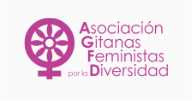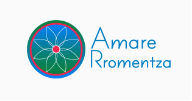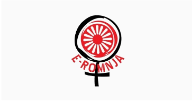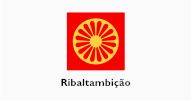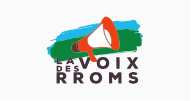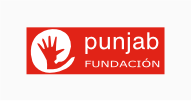Adult schools for inclusion in the diversity of roma women
The Asociación Gitanas Feministas por la Diversidad leads the European project Schools of Inclusion in Diversity: Inclusion of Young Gypsy Women through Non-Formal Education which is funded within the European call ERASMUS + 2017, in action KA2 "Strategic partnerships in the field of youth. Exchange of good practices".
Project Summary
Fighting against the social exclusion of the Romani community means reclaiming the role of the Romani community as a historical subject, capable of fully exercising its human rights, the rights of nourishment, health, housing and quality education, as well as its participation in the processes that define the forms of life and coexistence that delimit its personal and social development. In this sense, formal education is a fundamental tool to achieve the social inclusion of the Romani population, and especially of its women, since it contributes in a determining way to develop basic competences that avoid marginalisation, promote their socialisation and provide essential knowledge to transform their social environment in accordance to their needs.
To promote the social inclusion of the Romani community, it is necessary for Romani adult women to be reintegrated into the educational system and to promote their options for accessing better jobs, creating links with society in general, becoming political actors who aspire to change the system and put an end to racism and inequalities.
To achieve this objective, a Strategic Alliance has been formed between 6 entities from Spain, France, Portugal and Romania, which aims to build a European network with sustained support over time to promote SCHOOLS OF INCLUSION IN DIVERSITY. These schools are spaces of formation to provide Roma women over 18 years of age without studies, who have suffered school failure, with the tools, knowledge and skills to achieve their reintegration into the educational system with guaranteed success and to ensure greater social inclusion of these young women. All of the above is carried out through an innovative system of face-to-face, semi-attendance and virtual training.
These training schools will be spaces for learning and the development of formal and non-formal skills for the participating women, through dynamic learning processes adapted to the specific needs of the target population. The objective of these Inclusive Schools is:
- To establish links with the regulated educational centres to which the beneficiaries are to be reintegrated, so that the Roma people acquire the habits and skills necessary to attain their access, as well as their educational and social inclusion once access has been achieved.
- To promote the development of basic skills, literacy and educational habits to participating women, as well as their interest in learning as a mechanism to fight against school failure, the reinforcement of empowerment and their future work and social opportunities. This is done through specific educational processes.
- Educational guidance, counselling and training services for adult Roma women who have dropped out of school in order to ensure that they are able to pursue and wish to be reintegrated into the education system.
The materials to be designed will actively seek to promote the inclusion, empowerment and employability of Romani women.
A project that, through 4 transnational meetings (Spain, France, Romania and Portugal), national activities, continuous virtual communication and a great multiplier event; will create results that will not only improve the networking of the organizations, but will also encourage the simple way of creating SCHOOLS OF INCLUSION IN DIVERSITY throughout Europe that have a significant impact for the inclusion, empowerment and fight against school dropout of the Roma community.
Working Methodology
All these activities and results of the project will be based on a participative methodology centred on non-formal and informal education, with the aim of making the learning process attractive and motivating the participants, involving them in their own learning process and promoting peer learning, in addition to the fact that the young Romany women themselves are the main protagonists of the project, and that they are the ones who design and elaborate the training materials and manage the whole project.
Project Partners
Project Results
The project will allow the creation of a KIT FOR THE CREATION OF THE SCHOOL OF INCLUSION which will consist of a specific FORMATIVE COURSE to enable adult women of Roma ethnicity, especially women, to develop the skills necessary for their reintegration into formal education, but which at the same time will allow them to develop their empowerment, their self-confidence and the strength to overcome the imposed social, cultural and economic barriers.
Este curso formativo irá acompañado por una guía metodológica con mecanismos de formación y estrategias basadas en el trabajo formal y no formal con personas adultas de etnia gitana. Y diversos materiales educativos, accesibles de manera libre, que no solo incluirán los contenidos educativos necesarios para el «reenganche» de las usuarias a su itinerario educativo, sino que incluirán una serie de contenidos no formales que permitirán el desarrollo de otras competencias entre las y los beneficiarias/os orientadas hacia su inclusión social plena y su empoderamiento.
Main project activities
The following meetings have been held:
M1: 1st TM, FIGUEIRA DA FOZ - PORTUGAL (December 2018)
After completing the preparatory stage, the first meeting of the project was held in Portugal. Two members from each of the partner organizations participated having the status of representing the entity.
Esta reunión sirvió específicamente para:
- PREPARAR LA DOCUMENTACIÓN relacionada con el proyecto que ha sido firmada por los presidentes de las entidades. En esta sección se destacó la firma de acuerdos y convenios marco finales para la formalización del «Acuerdo de socios».
- FINAL IMPLEMENTATION OF THE PROJECT: to define the contents of the project according to its timetable, and to specify the necessary activities to develop the results, taking into account all possible corrections or proposals by the independent experts of SEPIE who evaluate the project. This also served to finish defining the budgetary items and the control of expenses in the following stages.
- INTELLECTUAL PRODUCTION: TRAINING COURSE TO ACCESS THE EDUCATION OF ADULTS FOR ROMA WOMEN. In all the TM of the project, this Intellectual Product was developed specifically, due to its great importance. During this first meeting, its structure and content, together with the tasks that each of the partner organizations had to execute.
- VISIBILIDAD DEL PROYECTO. Se han llevado a cabo actividades para mejorar la visibilidad del proyecto, incluida la creación del logotipo de la iniciativa, acordar la imagen visual del proyecto y especificar las características de su sitio web.
- LAZOS DE CIERRE ENTRE LOS PARTICIPANTES. Los socios se han conocido mejor, a través del trabajo, pero también a través de espacios informales para crear lazos de amistad y confianza.
- EVALUATION OF THE PREPARATION STAGE.
M2: 2nd TM, BUCAREST - ROMANIA (June 2019)
The second transnational meeting was held in Bucharest, Romania, and was attended by 2 leading members from each of the partner organisations. In this meeting we discussed about:
- PRODUCCIÓN INTELECTUAL: CURSO DE FORMACIÓN PARA ACCEDER A LA EDUCACIÓN DE ADULTOS PARA MUJERES GITANAS. Esta segunda reunión se centró en la coordinación del trabajo para desarrollar este Producto. Los recursos educativos audiovisuales se trabajaron específicamente mediante la creación de un aula de capacitación abierta, junto con los materiales para la alfabetización y el desarrollo puente de mujeres adultas romaníes que abandonaron la escuela temprano, y el desarrollo de herramientas innovadoras, que serán parte de la capacitación del curso.
- TANGIBLE RESULT: THE METHODOLOGICAL GUIDE FOR WORKING WITH ADULT ROMA WOMEN. This meeting also served to work on the methodological guide as one of the main outcomes of the project: it finalized by defining, specifying and distributing the partners' specific roles.
- MONITORING AND EVALUATION OF THE PROJECT AND ITS RESULTS.
M3: 3rd TM, SAINT-DENIS FRANCE (December 2019)
The third TM took place in France and also involved two leading members from each organization, adding to 12 participants who worked on:
- TANGIBLE RESULT: THE METHODOLOGICAL GUIDE FOR WORKING WITH THE ROMA COMMUNITY. This meeting will focus on methodology, which is why specific work was undertaken on the methodological guide. The participants shared, coordinated and evaluated the work done so far by each of the organizations, in order to finish defining the pending aspects so that it can be completed in time for the next meeting.
- LEARNING WORKSHOPS FOR NON-FORMAL METHODOLOGIES AND THE MANAGEMENT OF YOUTH GROUPS. Here, associations with more experience in this field, such as the Asociación de Gitanas Feministas por la Diversidad demonstrated how to work adequately with adult Roma women between 18 and 30 years of age through peer learning, and combining non-formal and informal educational methodologies and ICTs.
- INTANGIBLE RESULT: TRAINING COURSE
- All the work done so far was shared and its coordination was defined according to the planned schedule.
M4: 4th TM, MADRID, SPAIN (May 2020)
- EVALUATION OF THE IMPLEMENTATION STAGE, INTELLECTUAL PRODUCTION AND PROJECT RESULTS
- DEVELOPMENT OF THE DISSEMINATION STAGE, following the Dissemination Plan of the project.
- STRENGTHEN BONDS BETWEEN PARTICIPATING ORGANIZATIONS AND MEMBERS.
Project multiplication event
This event will be held on July 25, 2018 and will have a dynamic and innovative format, where not only will the presentation of the results be made, but the multiplying participants will take part through the use and evaluation of the materials. Their opinion will be taken into account to improve them, creating a final evaluation-act.
The event is proposed as a forum for debate, with workshops and active participation of all guests. This will have the following format:
THE PRESENTATION ACT: ADULT SCHOOLS FOR INCLUSION IN THE DIVERSITY OF ROMA WOMEN.
This will be the inauguration of the event and will present the project, its purpose, objectives and main activities. We hope to be able to count on the rest of the partners in a virtual way as a mechanism to make them participate in it.
This act will be directed by María José Jiménez Cortiñas, the president of the association, who was born in Ourense and has a Diploma in Social Work. The president of the Punjab Foundation, Enrique Giménez Adell, will participate with her.
SHOWCASING THE RESULTS: KIT FOR THE CREATION OF AN INCLUSIVE SCHOOL
The technical presentation of the results of the project and especially the training course obtained will be given by Carmen Fernandez Molina as she is qualified in teaching, has worked in the School Absenteeism Program of the Department of Education of the City of Cartagena and is an expert in educational inclusion and working with young people at risk of social exclusion, especially the Roma. She is currently working as a teacher in an educational centre.
GROUP DYNAMICS: CREATING A SCHOOL OF INCLUSION
Next, a group dynamics will be carried out, with the help of virtual mediums it will be promoted so that the public will try to follow all the steps required to set up their own INCLUSION SCHOOL. To do so, they must search for the resources offered through the project's web platform, as well as download and implement them in an annual programme adapted to the needs of their own institution. Through debate, public proposals and advice on promoting techniques, a role-playing system will be created to enable all multiplying participants, in the future, to take advantage of the results and replicate their own schools of inclusion.
ROUND TABLE: THE NEED TO VINDICATE THE ROMANI WOMAN
A round table will be held with the participation of experts from multiple disciplines to assess the results and establish direct agreements for its rapid implementation. It will also be an opportunity to discuss the need for these projects and to establish proposals to strengthen the network and future projects.
CLOSING
The closing of this event will include the appreciation of the Erasmus Plus Programme and the farewell to a person of the highest authority in the field of education or social welfare.
